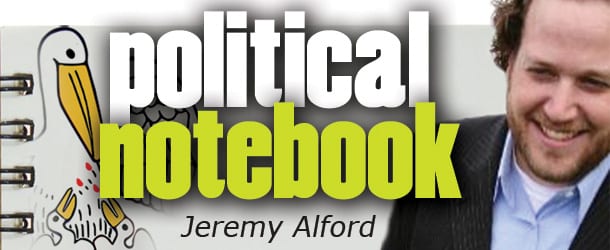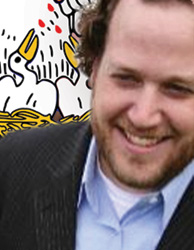During the final months of former Gov. Bobby Jindal’s tenure, his office and cabinet heads implemented millions of dollars worth of pay raises for state employees and made nearly two dozen board and commission appointments that were not publicized.
It’s all being unearthed as part of the excavation efforts of Gov. John Bel Edwards’ administration. The pay raises, in particular, are disturbing to Edwards, according to sources who say the governor instructed his department secretaries and agency directors to report all findings related to the raises as soon as possible.
The expenditures are coming to light as staffers and legislators are considering furloughs, among other measures, as a way to handle a $750-million current fiscal year shortfall. Next fiscal year, the gap is expected to reach $1.9 billion.
When asked about the pay raises, a spokesman for Jindal’s office didn’t confirm the salary hikes, but told LaPolitics that the decisions had been left up to each department and agency head, without consultation with Jindal.
Documents obtained show at least four departments triggered performance adjustments of up to 4 percent, or at least $19.1 million in new expenditures for the current and next fiscal years. The tally is expected to grow as more raises are uncovered.
All the departments identified so far now have new secretaries or directors that have been appointed by Edwards.
The Department of Transportation and Development saw a 4-percent merit-based increase in Jindal’s final days. That amounts to $6.5 million this fiscal year and $11.5 million next fiscal year, accounting for attrition and benefits.
The Department of Wildlife and Fisheries allowed all classified and non-appointed unclassified employees who had a full year of service by Oct. 1 to receive a 4-percent prospective increase, totaling $1.19 million in new expenses.
The Coastal Protection and Restoration Authority put in place a 4-percent retroactive pay raise, but the cost was unknown as of publication time. The Department of Environmental Quality saw increases, too; at what level is still not known.
This could be a developing issue, with at least 78 different agencies and departments eligible to receive performance adjustments beginning in December, 2015, according to data provided by Civil Service.
On Jan. 8, the Friday before Edwards’ inauguration, Jindal signed off on 23 board and commission appointments. He placed former state Sen. Ann Duplessis on the Louisiana Lottery Corp. Board. Jindal had also appointed Duplessis to the LSU Board of Supervisors during his tenure.
Among others, Lake Charles attorney Thomas Henning was added to the Board of Regents and Nathan Wall, of Springfield, was placed on the Wildlife and Fisheries Commission.
Doctor Joins Congressional Candidates
Louisiana already has more doctors serving in Congress per capita than any other state. The state will only solidify its lead in this area if Dr. Trey Baucum has his druthers.
He’ll soon be announcing his candidacy for the 4th Congressional District, where he’ll try to replace Congressman John Fleming.
A cardiologist, Baucum is building his campaign infrastructure quickly. He’s hired Roy Fletcher as his media consultant.
Baucum comes from a well-known north Louisiana family and will run as a conservative Republican.
State Rep. Mike Johnson of Shreveport is all geared up to run as well, and will be a formidable candidate.
Also considering the race are Michael D. Reese, a well known advocate for Fort Polk and the CEO of American Moving and Storage; Shreveport Councilman Oliver Jenkins; and state Rep. Patrick Jefferson.
In the 3rd District, being vacated by Congressman Charles Boustany, Grover Joseph Rees is thinking about jumping in the ring. He’s a former U.S. ambassador to East Timor and a Republican activist.
Lafayette Parish School Board member Erick Knezek is running. So is retired Army Lt. Col. Greg Ellison.
Public Service Commissioner Scott Angelle, after barely being squeezed out of the gubernatorial runoff, is back at work. He’s being encouraged to run for the U.S. Senate and for the 3rd District, but hasn’t yet announced his plans.
Former state Rep. Brett Geymann of Lake Charles, who’s been actively campaigning, is expected to make his final decision very soon.
State Rep. Stuart Bishop, of Lafayette, and former state Sen. Elbert Guillory, of Opelousas, have also been mentioned as possibilities.
The Politics Of The 2016 Speaker Election
Roughly an hour before he was sworn into office, Democratic Gov. John Bel Edwards, the first Louisiana governor ever elected directly from the state House, saw the limits of his power tested when representatives selected a Republican speaker.
The governor’s support is so critical that no House speaker has been elected in recent history without the backing of Louisiana’s top official. It was also a historic moment in Louisiana’s lower chamber, where there hasn’t been a contested speaker election that was accompanied by a public voice vote since 1984.
Rep. Mike Johnson, R-Shreveport, said the vote was more about the House declaring its independence from gubernatorial control, which is a form of sway that’s found less in statute and the state Constitution than it is in Louisiana’s colorful political legend and lore.
“It’s a true separation of powers now,” said Johnson. “And for Republicans, it was about principle. It was about making sure the governor did not get his choice for speaker. This makes it very clear that the governor is going to have a difficult time in the House with his proposals.”
Edwards is also the first Democratic governor in recent history to have to work with a Republican-majority Legislature. Louisiana has had Republican governors paired with Democratic Legislatures in the past, but those days were marked neither by red nor blue partisan politics.
In the 1970s and 1980s, and even into the 1990s, lawmakers rarely, if ever, voted along stringent partisan lines. Today, however, the Legislature’s issues are growing more nationalized and the divide is becoming clearer.
“If a color analogy is needed, John Bel Edwards has to have a purple Legislature again,” said Joshua Stockley, a political science professor at the University of Louisiana at Monroe. “As we moved away from Gov. (Kathleen) Blanco and into the term of Gov. (Bobby) Jindal, we saw less of that. Now those days seem completely gone — especially for the next four years.
“But something will have to give. There are not enough Democrats to ignore the Republicans, and Republicans need to work with the governor because he does have veto authority.”
Ben Nevers, Edwards’ chief of staff, said the administration is “excited” about working with a Republican Speaker and House, but he doesn’t know yet where or how compromises will be struck. “I don’t think the people of Louisiana want gridlock,” Nevers said. “I’m very concerned right now about partisan politics.”
This scenario could force Edwards to rely heavily on executive orders, much as recent presidents have. He’s already doing this in his expansion of Medicaid and other actions.
“But that’s not real policymaking,” said Stockley. “That’s more like political cover. And something you can use to say you are delivering on your promises.”
Gene Mills, president of Louisiana Family Forum, a Christian-based political advocacy group, said that Edwards should be pleased with the outcome, since the House leadership now aligns perfectly with some of his campaign vows on traditionally conservative issues. “This decision will help Gov. Edwards fulfill his pro-life and pro-family pledges,” Mills said.
Still, there are some who argue that the promises from Edwards’ inauguration speech and his early executive actions — the reversing of food stamp restrictions; the advocacy of equal pay for women; and the proposing of protections for the lesbian, gay, bisexual and transgender communities — show he won’t necessarily be the moderate portrayed by his 2015 campaign.
“The positions he is taking now are certainly not the ones he echoed and repeated during the election,” said Bernie Pinsonat, a partner with Southern Media and Opinion Research. “You can see people on social media starting to look at this and say, ‘Wow. This guy is a liberal.’ It’s going to be difficult for him to both maintain his Democratic base and please those conservatives and moderates who supported him.”
Rep. Kirk Talbot, R-River Ridge, said the vote in the House puts Edwards in a position where he’ll have to give more to work with representatives; this will be different from lawmakers in the lower chamber trying to compromise with Edwards.
“This puts us in a better position to get the governor to play ball on the budget and other issues — more so than if he would have gotten the speaker he wanted,” said Talbot.
Others believe the move to a Republican speaker gives Edwards political cover. Since the House now has independence, Edwards will be able to lay blame at its feet if representatives are unable to forge a compromise on upcoming budget negotiations.
There’s a $750-million shortfall for the current budget year that concludes at the end of June and a $1.9-billion gap for the next fiscal year.
Rep. Katrina Jackson, D-Monroe, the chairwoman emeritus of the Legislative Black Caucus, said, “All this shows is that Republicans wanted a Republican speaker and the House wanted independence. The last two years, when Republicans had a majority, we all managed to compromise. This body knows how to work together.”
Fayard Likely For Senate
While the Republican side of the race to replace U.S. Sen. David Vitter is stacked, the Democratic side still hasn’t come into focus.
But Denham Springs attorney Caroline Fayard, who ran for lieutenant governor in 2010, seems positioned to change that. Her campaign team is putting together its fundraising staff and is actively interviewing and hiring.
Fayard hasn’t yet made an official announcement.
State Sen. Gary Smith of Norco was making the rounds in Washington, D.C., while other Louisiana Democrats continued to test the waters. These Dems included Public Service Commissioner Foster Campbell of Oak Grove, state Sen. Eric LaFleur of Ville Platte, state Rep. Robert Johnson of Marksville and Alexandria Mayor Jacques Roy.
For more Louisiana political news, visit www.LaPolitics.com or follow Jeremy Alford on Twitter @LaPoliticsNow.














Comments are closed.